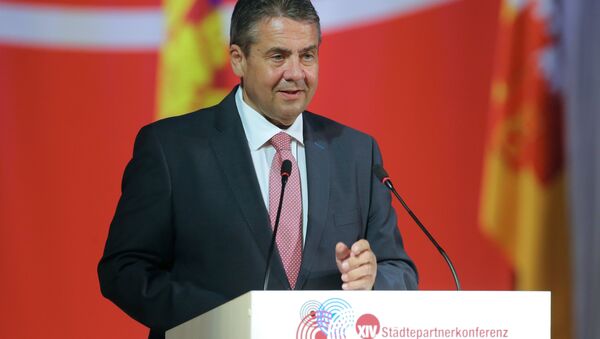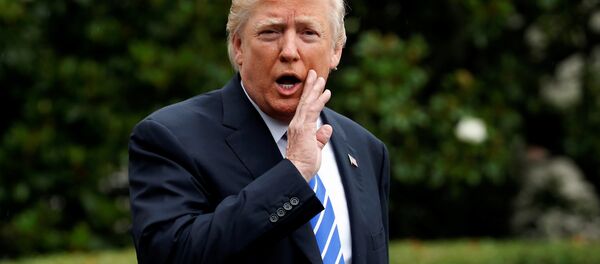MOSCOW (Sputnik) — Gabriel criticized the US policy of "aggressively binding US economic interests with issues of external policy," stating that Germany could not accept Washington’s open desire to "push Russian gas from the European market" in order to be able to sell its own gas.
"We consider them [the sanctions] as more than problematic… This bill openly recognizes that they [the US] pursue economic interests, and we consider it inadmissible," Gabriel said at a press conference after the meeting with his Slovak counterpart Miroslav Lajcak, adding that the new legislation is "diametrically opposite to the interests of Germany and the European Union."
On Wednesday, US President Donald Trump signed into law a new bill imposing additional sanctions against Russia, Iran and North Korea. The sanctions target Russia's defense, intelligence, mining, shipping and railway industries and restricts dealings with Russian banks and energy companies. The bill also stressed that the United States would continue to oppose the construction of the Nord Stream 2 natural gas pipeline. The law also limits the US president's ability to ease any sanctions on Russia by requiring Congressional approval to lift any restrictions.
The bill has been criticized by the European Union, particularly due to the concerns that the new sanctions will impact its economic interests, especially its energy cooperation with Russia. France and Germany have spoken out against the bill as it affects European industries while advancing US commercial interests.
On Tuesday, Gabriel stated that the European Union would defend itself against an "America First" industrial policy pursued under the pretext of sanctions.
In April, Gazprom's subsidiary Nord Stream 2 AG signed a deal with French Engie, UK’s Royal Dutch Shell, Austria’s OMV and Germany's Uniper and Wintershall, which agreed to provide part of long-term financing of the gas pipeline project, estimated at 9.5 billion euros ($10.6 billion).



